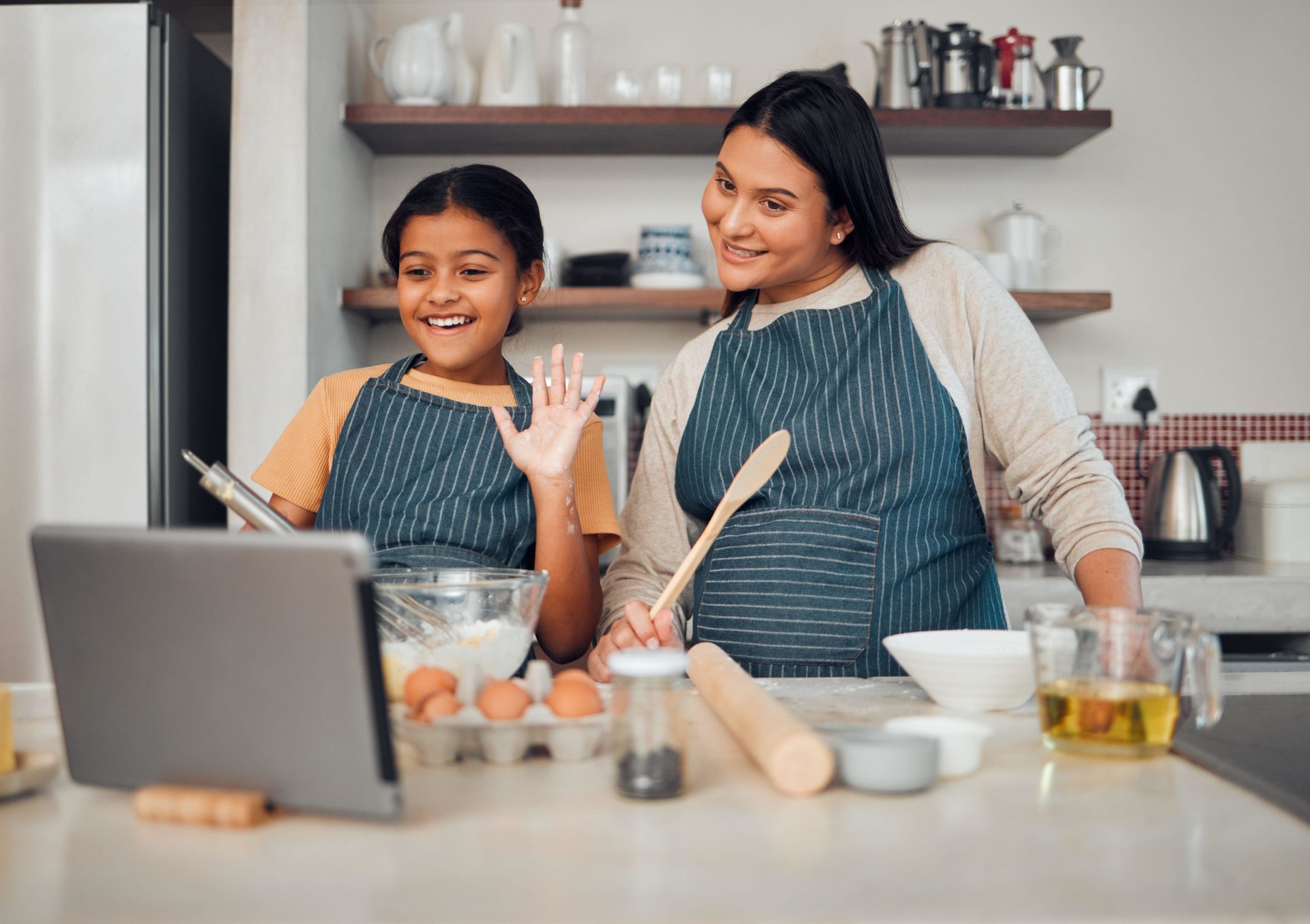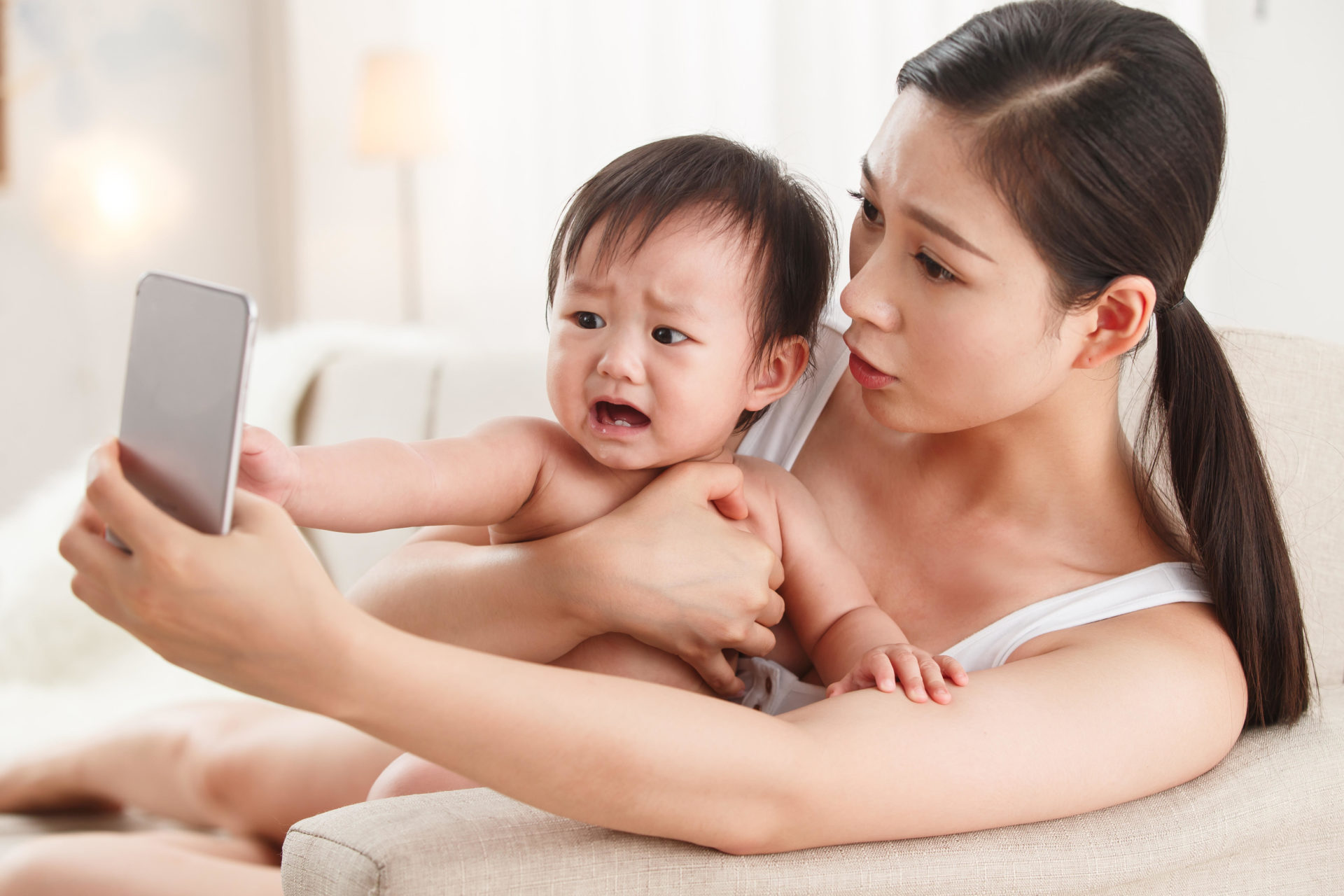Are family influencers posting their children to document happy family memories, or to make money?
And further, does this type of content count as child exploitation or worse?
In a report by Newstalk’s Sarah Madden aired to The Pat Kenny Show, freelance journalist Filomena Kaguako explained the type of content that a family influencer might poast.
“A lot of the times it could be very much just standard, like a pram that you might use for your child,” she said.
“It might be a product, whether it’s like formula feed; it’s a certain thing that the mother would use on a regular basis.
“A lot of it would be, ‘Come watch me do a school run,’ for instance.
“Like, ‘I’m going here in my joggers and my runners and my hair is tied up in a bun'; very much like that.”
Ms Kaguako also said that “nano-influencers”, those who have up to 10,000 followers, could make anywhere from €50 to €200 per post.
 Family influencer. Image: Yuri Arcurs / Alamy. 27 May 2022
Family influencer. Image: Yuri Arcurs / Alamy. 27 May 2022Family influencer Julie Haynes has more than 400,000 followers across platforms, where she posts about her life as a single mother to two twins.
“I wanted to show the good, the bad and the ugly," she said.
“So, I showed the nights, yes, that they went to sleep at eight o’clock, but also the nights that I was up and down the stairs, rocking them to sleep, or if I was going to the toilet, they were literally sitting on my lap.
“You have to share that as well, I truly believe.
“We have plenty of great days, don’t get me wrong, but we also have crappy days as well.”
Successful model
Ms Haynes said she often gets messaged from other parents thanking her for sharing the reality of her situation.
“It’s good to be like, ‘I’m not alone’,” she said.
“It’s lovely to have that feeling; ‘I’m not alone, I’m having an awful day, it’s not just me, there’s other mammies out there also having awful days, but tomorrow is a new day’.”
According to Ms Haynes, whos family influencer career has become so successful that she was able to quit her full-time job, the model also works especially well for her schedule, as she can be at home with her children.
 Mother to baby pictures. Image: View Stock / Alamy. 15 August 2018
Mother to baby pictures. Image: View Stock / Alamy. 15 August 2018However, family psychotherapist Joanna Fortune warned that posting children so publicly can be a huge danger, and also that making money off their activities can be considered exploitative.
“Even if you say to yourself, ‘Well, I ask my child, can I post this video of photo?’ And they say yes, I would have to challenge that, because that’s not informed consent by that child,” she said.
“Consent, by its nature and definition, means that you can give it and you can withdraw it.
“That’s simply not true [in this situation] because once a photo or video online, it’s there, and even if you remove it, how many people have seen it?”
Joanna said that while she understands that for many parents, this is how they support their children and their lifestyles, they should remember that under this model, their children are technically their employees.
This means that a certain amount of the profits made off their image should be set aside for them to use in later life.
Main image: Young female blogger and online family influencer. Image: Elen / Alamy. 26 January 2020









